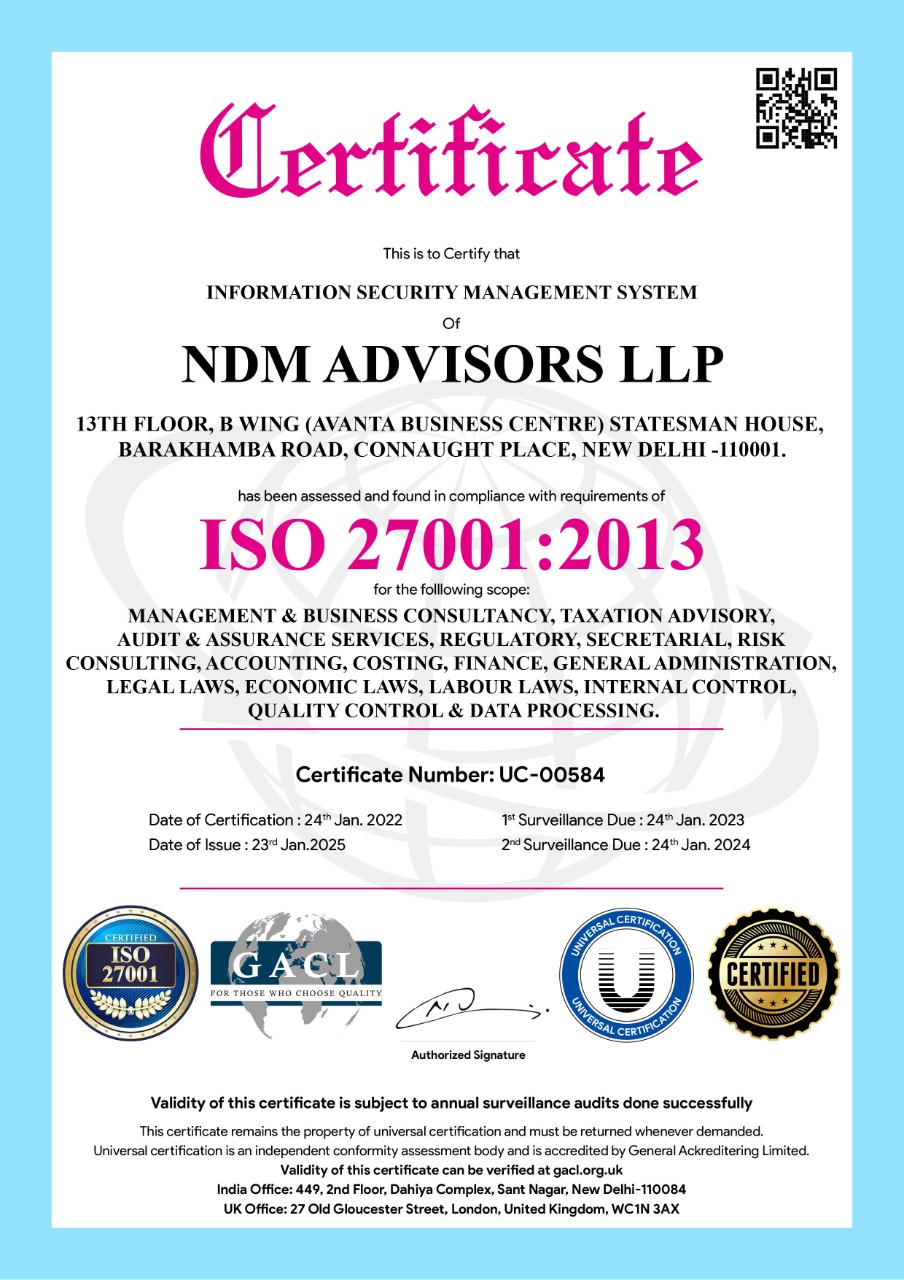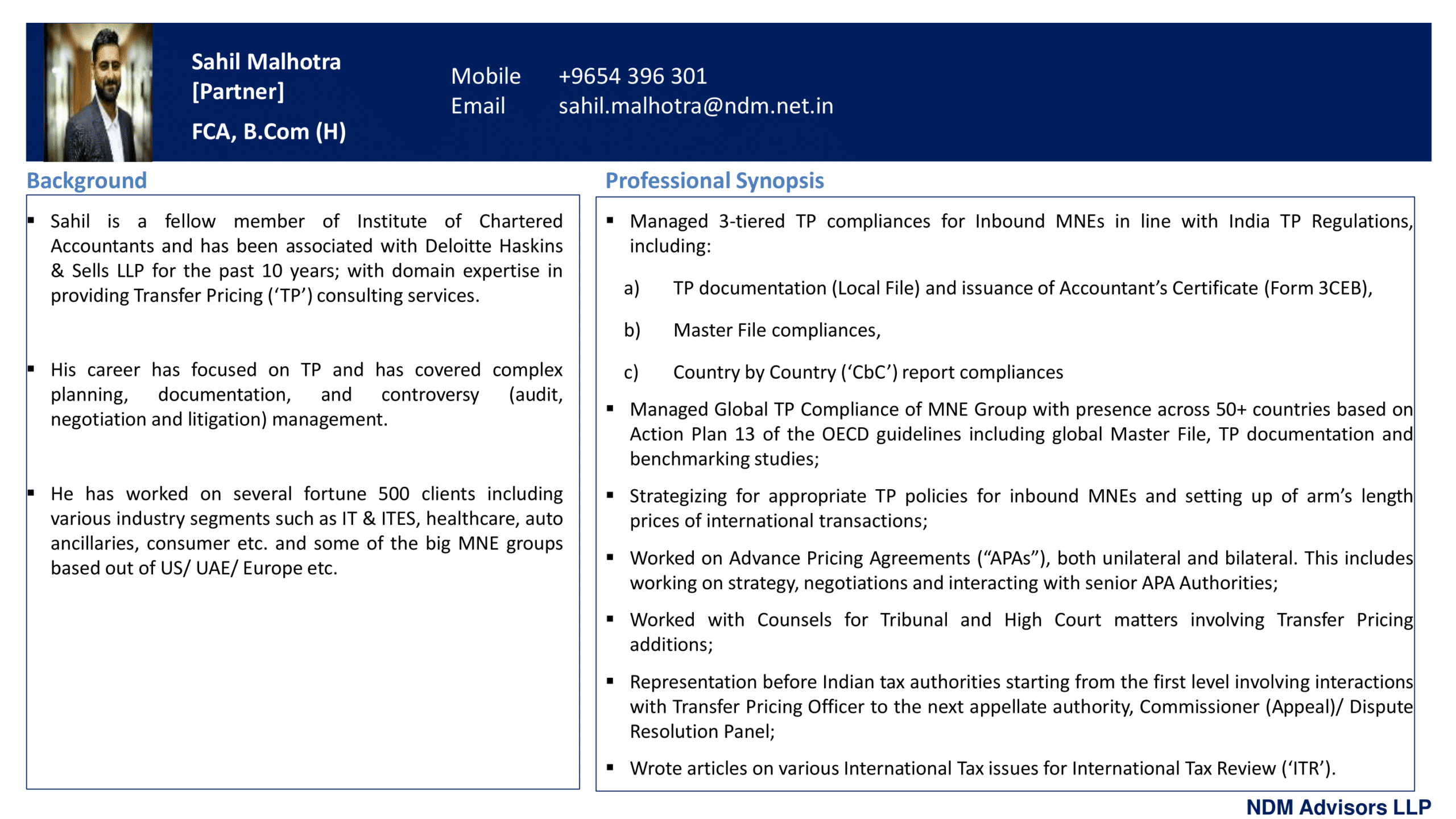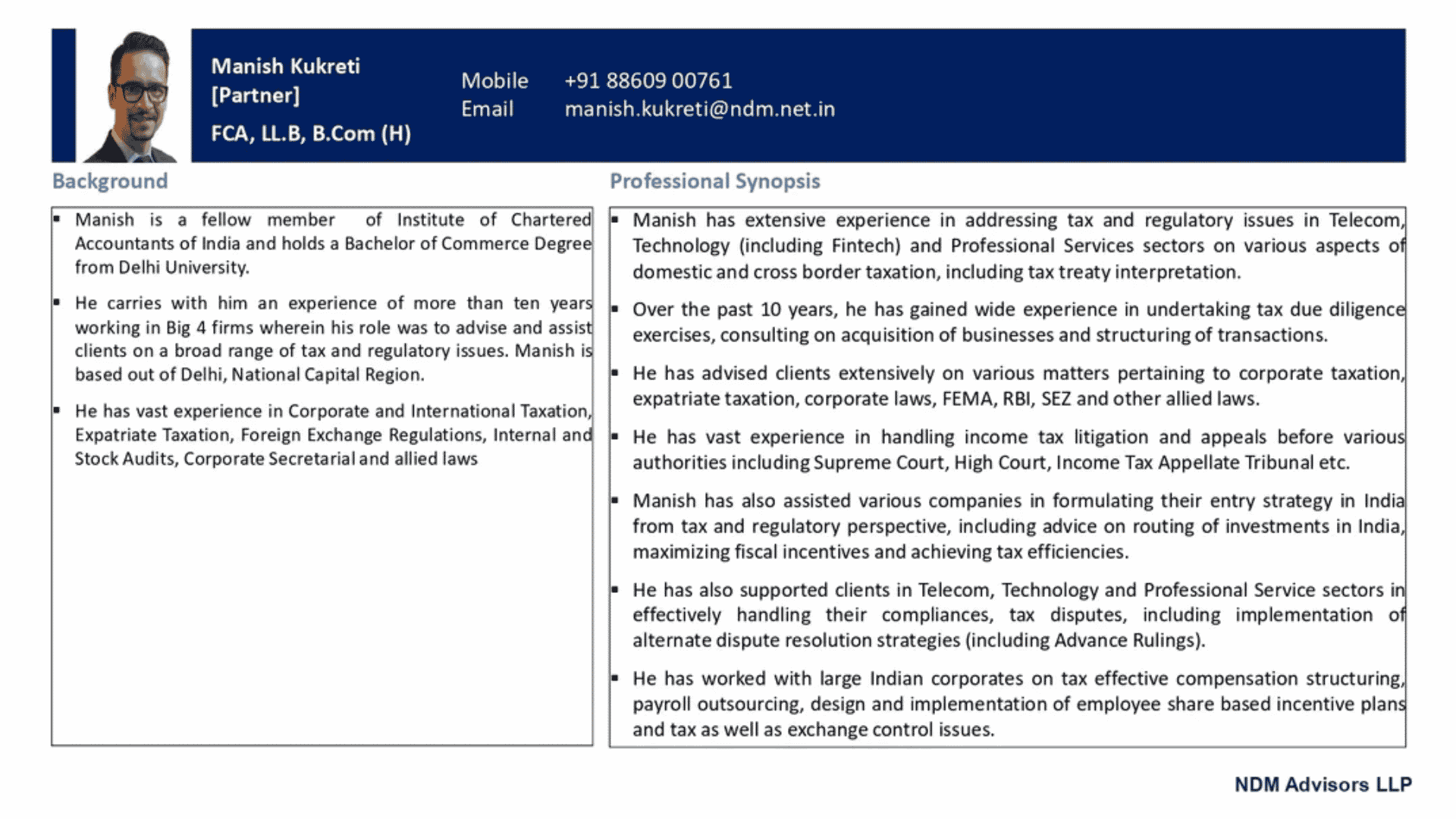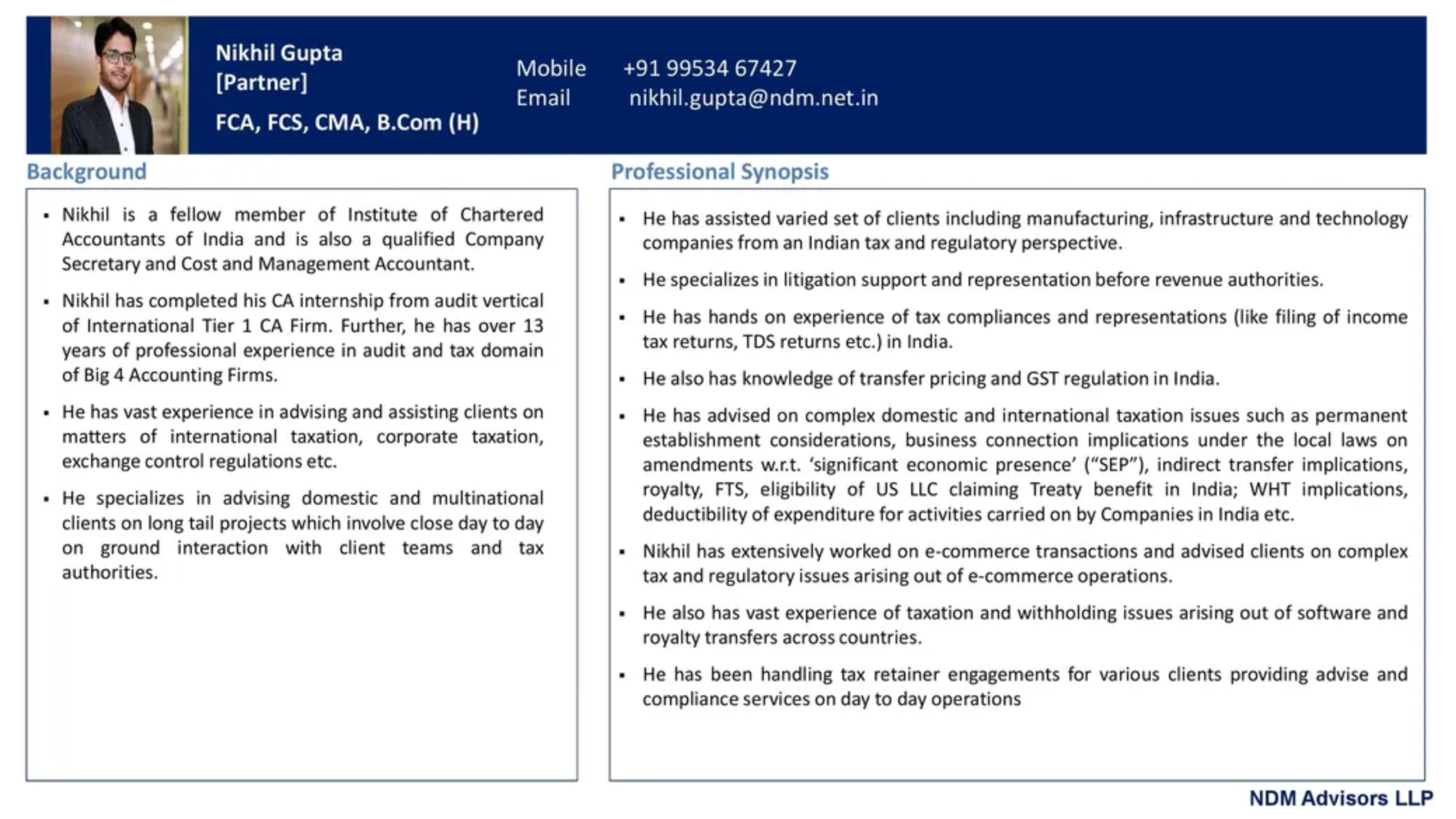Planning Critical for Philanthropic Payments and Charitable Institutions | Indian Supreme Court’s Decisions

While, strategic philanthropy can never really be extracted completely from the corporate charity, the recent socio-economic developments in India have seen a marked change in the way regulators look at the philanthropic institutions in India. Indian regulators have adopted a rather stringent approach towards the approvals and statutory compliances of charitable institutions. In the decisions of New Noble Educational Society Vs. CCIT-1 (Civil Appeal 3795 of 2014) and Ahmedabad Urban Development Authority (Civil Appeal 21762 of 2017), the Honourable Supreme Court of India has adjudicated upon the issue related to allowability of exemptions to the charitable institutions considering the pre-requisite conditions for allowability of such approvals.
In this article, we present before you a brief upon the decision of Honorable Supreme Court of India in case of New Noble Educational Society and Ahmedabad Urban Development Authority.

Intricacies of the Litigation
The subject matter of the appeal is the rejection of the appellants’ claim for registration as a fund or trust or institution or any university or other educational institution (hereinafter collectively referred to as “institution / trust”) set up for the charitable purpose of education, under the Income Tax Act, 1961 (hereinafter, “IT Act”). The organisations under question were before the Hon’ble Supreme Court against the decisions of jurisdictional High Courts wherein the claim of Charitable Purpose was challenged by the High Courts and the underlying tax exemption being denied to such organisations.
The Andhra Pradesh High Court, by its detailed judgment, held that the appellant trusts which claimed benefit of exemption under Section 10(23C) of the Income Tax Act, 1961 (‘Act’) were not created ‘solely’ for the purpose of education, and that to determine that issue, the court had to consider the memorandum of association or the rules or the constitution of the concerned trust. Further, the profitability matrix of the organisations under question were thoroughly deliberated and scrutinised by Courts in order to determine the test of marginal profitability vs substantial profitability.
The appellants not having business objective aligned to Section 2(15) were denied income tax exemption. Additionally, Supreme Court also held that the organisations were obliged to follow all the local laws in order to claim benefit of tax exemption under the Act. The appellants were also denied registration on the ground that they were not registered under the Andhra Pradesh Charitable and Hindu Religious Institutions and Endowments Act, 1987 (hereinafter, “A.P. Charities Act”) as condition precedent for grant of approval.

Litigious provisions of the Act
“Section 10 – Incomes not included in total income.
Section 10(23C) any income received by any person on behalf of—
…
(vi) any university or other educational institution existing solely for educational purposes and not for purposes of profit, other than those mentioned in sub-clause (iiiab) or sub-clause (iiiad) and which may be approved by the [Principal Commissioner or Commissioner];
…
(iiiab) any university or other educational institution existing solely for educational purposes and not for purposes of profit, and which is wholly or substantially financed by the Government;
…
(iiiad) any university or other educational institution existing solely for educational purposes and not for purposes of profit if the aggregate annual 91[receipts of the person from such university or universities or educational institution or educational institutions do not exceed five crore rupees];
Section 2(15) “charitable purpose” includes relief of the poor, education, yoga, medical relief, preservation of environment (including watersheds, forests and wildlife) and preservation of monuments or places or objects of artistic or historic interest, and the advancement of any other object of general public utility:
Provided that the advancement of any other object of general public utility shall not be a charitable purpose, if it involves the carrying on of any activity in the nature of trade, commerce or business, or any activity of rendering any service in relation to any trade, commerce or business, for a cess or fee or any other consideration, irrespective of the nature of use or application, or retention, of the income from such activity, unless—
(i) such activity is undertaken in the course of actual carrying out of such advancement of any other object of general public utility; and
(ii) the aggregate receipts from such activity or activities during the previous year, do not exceed twenty per cent of the total receipts, of the trust or institution undertaking such activity or activities, of that previous year;
Income from property held for charitable or religious purposes.
Section 11
…
(4A) Sub-section (1) or sub-section (2) or sub-section (3) or sub-section (3A) shall not apply in relation to any income of a trust or an institution, being profits and gains of business, unless the business is incidental to the attainment of the objectives of the trust or, as the case may be, institution, and separate books of account are maintained by such trust or institution in respect of such business.
[Emphasis Supplied]
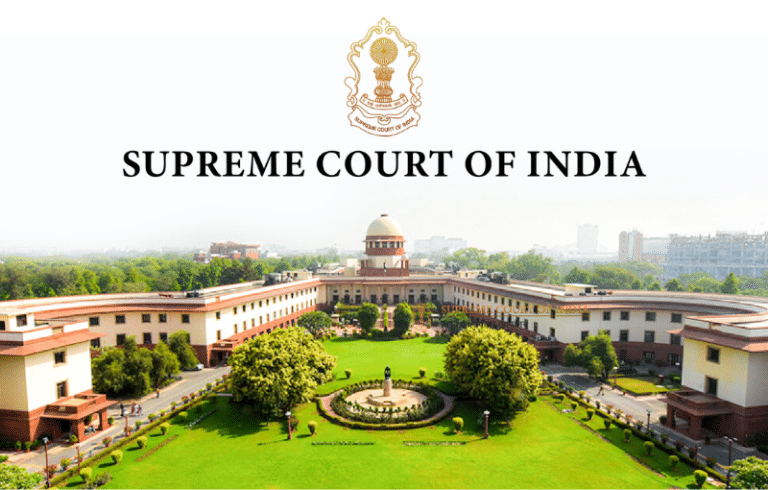
List of Supreme Court Decision:
The principles as laid down by the Hon’ble Supreme Court of India while testing the eligibility of charitable institutes to claim exemption under Section 10(23C) read with Section 2(15) of the of the Act are as follows:
- It is incumbent that the charitable institution, society or trust etc., shall be ‘solely’ engaged in education or educational activities, and not engage in any activity of profit or have objects unrelated to education;
- Where the objective of the institution appears to be profit-oriented, such institutions would not be entitled to approval under Section 10(23C) of the Act. Where surplus accrues, it is not a bar, provided such surplus is generated in the course of providing education or educational activities;
- The reference to ‘business’ and ‘profits’ in the seventh proviso to Section 10(23C) and Section 11(4A) merely means that the profits of business which is ‘incidental’ to educational activity;
- While considering applications for approval under Section 10(23C), the Commissioner or the concerned authority as the case may be under the second proviso is not bound to examine only the objects of the institution but can also call for the audited accounts or other such documents. This would enable the Commissioner or concerned authority to ascertain the genuineness of the trust, society etc. This reasoning is reinforced by the recent insertion of another proviso of Section 10(23C) with effect from 01.04.2021;
- General test under Section 2(15) of the Act is that the assessee advancing general public utility cannot engage itself in any trade, commerce or business, or provide service in relation thereto for any consideration (“cess, or fee, or any other consideration”). Further, the charitable organisations engaged in general public utility can only engage in trade, commerce or business when the same is in course of achieving the object of general public utility subject to fulfilment of conditions as prescribed under Section 2(15) of the Act;
– It is held that charitable institutions and societies, which may be regulated by other state laws, have to comply with them- just as in the case of laws regulating education (at all levels). Compliance with or registration under those laws, are also a relevant consideration which can legitimately weigh with the Commissioner or other concerned authority, while deciding applications for approval under Section 10 (23C).
- Statutory corporations set up by government are essentially undertaking public functions/ services, their receipts shall not be considered as business or commercial receipts;
- Supreme Court held that generally, the charging of any amount towards consideration for such an activity (advancing general public utility), which is on cost-basis or nominally above cost, cannot be considered to be “trade, commerce, or business” or any services in relation thereto. It is only when the charges are markedly or significantly above the cost incurred by the assessee in question, that they would fall within the mischief of “cess, or fee, or any other consideration” towards “trade, commerce or business”. In this regard, the Court has clarified through illustrations what kind of services or goods provided on cost or nominal basis would normally be excluded from the mischief of trade, commerce, or business, in the body of the judgment. It is subjective and depends on a case-to-case basis as to when can price be considered as ‘significantly higher’ and thereby attracting the limits prescribed under Section 2(15) of the Act;
- Where it can be proved that the charges or fee charged by organisation is nominal, the same is sufficient to prove that the assessee is driven by charitable purposes;
The Supreme Court has reiterated that education can be equated to charity only when education is sole objective of the institution and that trade, business or commerce in any form cannot be equated to charity. Further, the Court also pronounced that the interpretation as pronounced in foregoing judgements shall operate prospectively in the larger interest of society.
It is imperative that in order to avail the tax benefits under Section 10(23C) of the Act, the Charitable Institution is set up with objective of “solely” for the purpose of education and it should not exist for the purpose of profit. It is often debated as to what portion of activities of assessee shall be attributable to such charitable purposes. Revenue authorities often agitate the argument that where the assessee applies for registration as a charitable organisation under Section 12AA of the Act but generates revenue through business endeavours then the purpose of availing exemption under Section 10 (23C) of the Act gets defeated.

Key Take-aways for Charitable Organisations:
The aforementioned decisions of Hon’ble Supreme Court along with recently introduced stricter legislative provisions pertaining to overseas philanthropic remittances is bound to create resistance amongst India Inc towards corporate philanthropic endeavours.
It is imperative that the charitable institutions realign their business model and undertake a thorough analysis of the revenue generating activities carried out by them. It is required that annual review of the business activities is conducted for determining whether any particular activity amounts to ‘trade’, ‘business’ or ‘commerce’. Segregation of business activities and revenue streams is required in order to be able to de-risk the operations of the organisation and to ensure continue benefits of exemptions under Section10(23C) of the Act. Organisations are required to set their pricing matrix to so as to satisfy the test of ‘significantly higher’ as set by the Hon’ble Court.
Further, it is also imperative for the charitable organisations to align their pricing matrix so as to justify test of “significantly higher” prices being charged on products/ services. In this regard, maintenance of proper records and books of accounts to justify the costing of commercial activities are incumbent upon the charitable organisations to ensure that the prices are not markedly higher and to so to ensure continued benefits of tax exemptions.
The review of business activities, pricing matrix, profitability analysis would be required to be carried out on an annual basis by the organisations as the Supreme Court gave free hand to authorities to review the same on an yearly basis. Therefore, the possibility of exemption currently being enjoyed by an organisation not being challenged in subsequent years cannot be ruled out.
Since, the Apex Court has provided clarity that the ruling shall only apply prospectively, therefore, the same has paved way for the charitable organisations to make changes to their operational model without the fear of litigation against preceding year’s business activities.
Have Any Question?
Send us a message and tell us more about your business and financial goals. We will get back to you soon to schedule a consultation.
- +91 9873210394
- Communications@ndm.net.in













